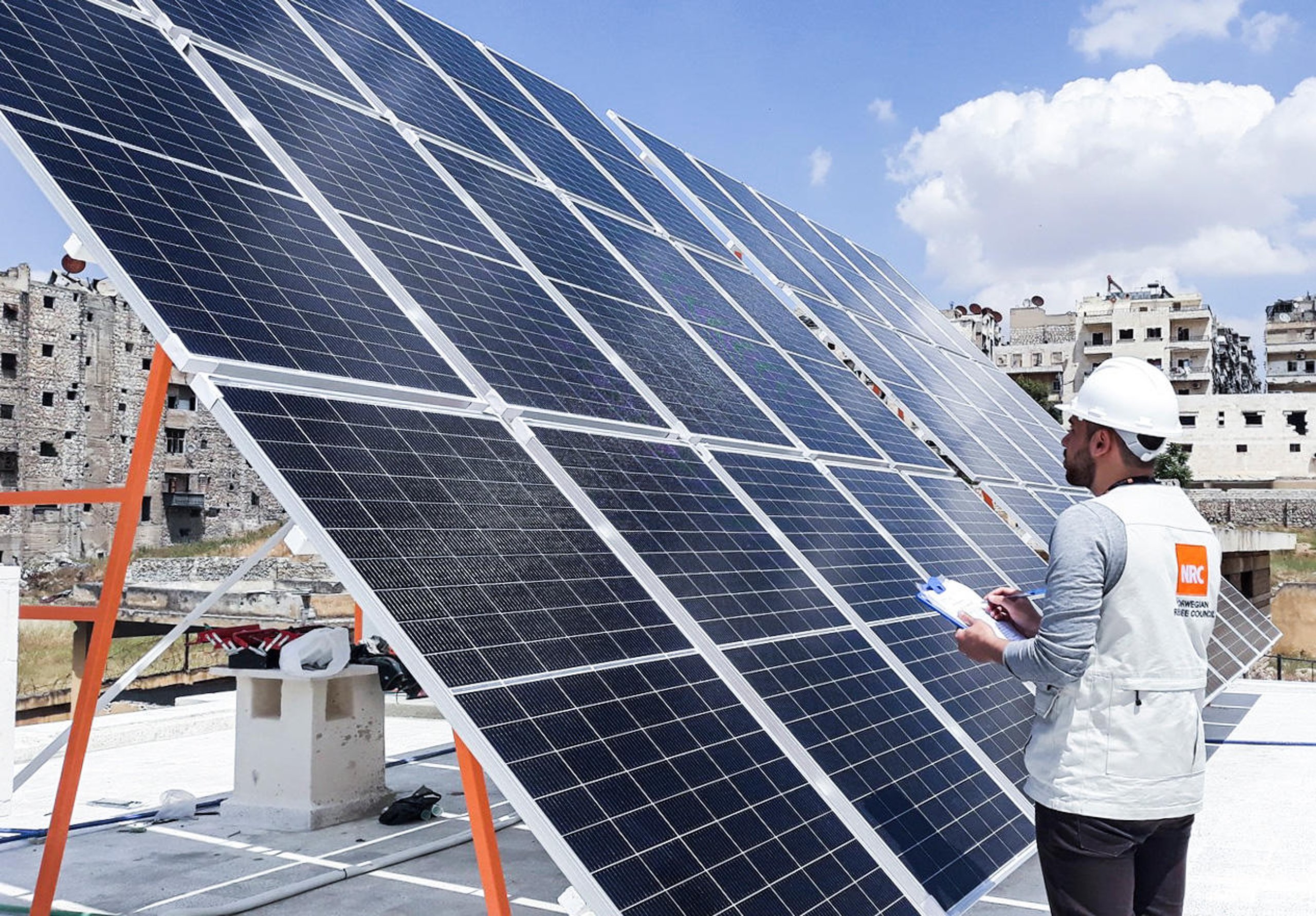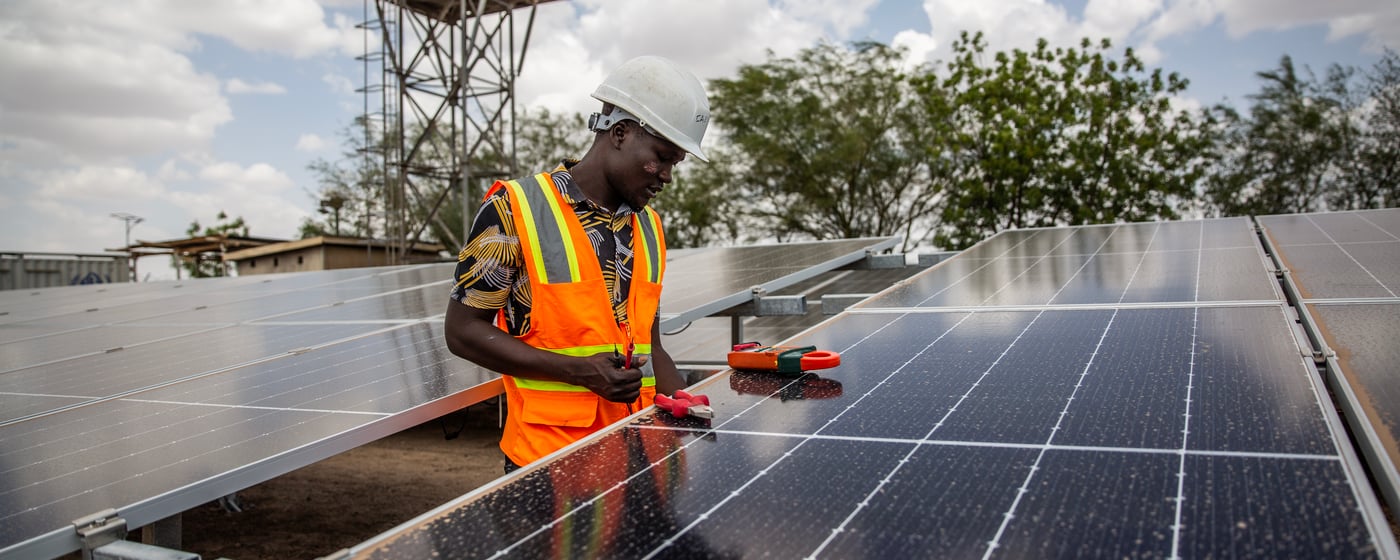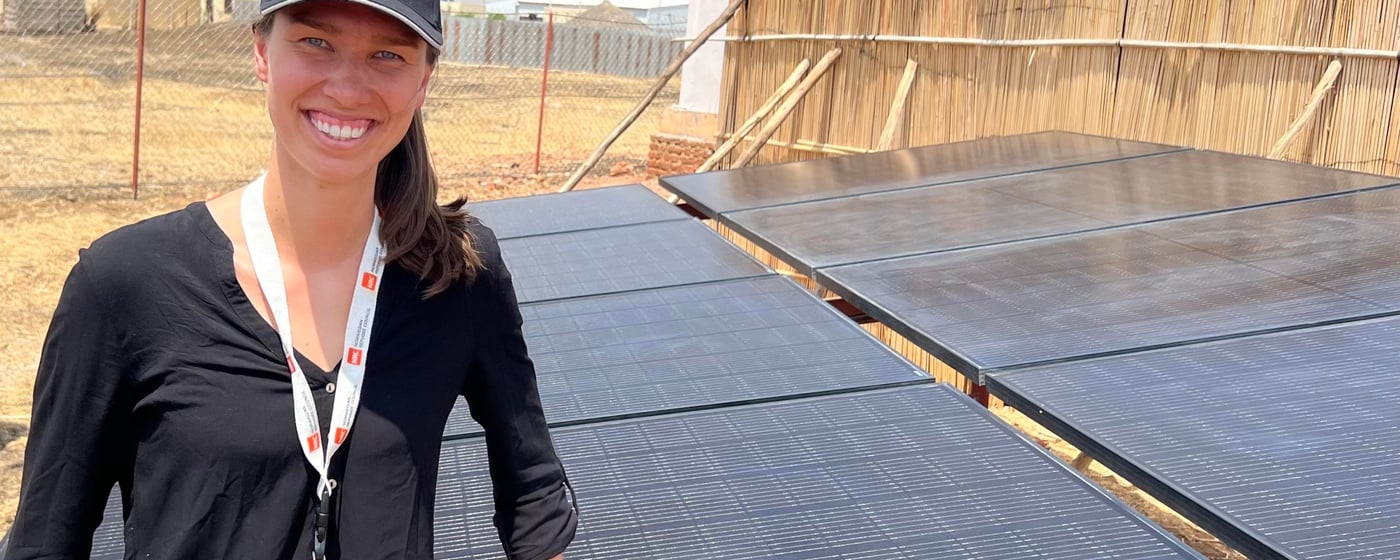The fund has an initial focus of replacing diesel generators with solar technology, and combines grants and loans from private investors, institutional donors, and NRC's own reserves.
The transportation of diesel fuel can be expensive and risky, as it may be subject to interference from armed groups. This can make the delivery of aid unpredictable for those who need it the most.
Most crises last at least five years, and the use of diesel generators and the fuel supply chain constantly increase the carbon footprint of our humanitarian operations.
This is why NRC is working to upgrade from diesel to solar power, which is more dependable, clean, and affordable in the long run. Solar power is better for humanitarian delivery, and better for the planet.
However, traditional humanitarian funding is often short-term and tightly earmarked, and hence not suitable to fund such longer-term capital investment. This is why we have created the capital fund.
About the fund
The fund will blend grants and loans from private and institutional investors, as well as resources from NRC’s own reserves. It is legally held by NRC, a 75-year-old international NGO funded by multiple governments and private donors, and with an annual turnover of more than USD 700 million.
The fund has an initial focus of replacing diesel generators with solar technology, and combines grants and loans from private investors, institutional donors, and NRC's own reserves.
The transportation of diesel fuel can be expensive and risky, as it may be subject to interference from armed groups. This can make the delivery of aid unpredictable for those who need it the most.
Most crises last at least five years, and the use of diesel generators and the fuel supply chain constantly increase the carbon footprint of our humanitarian operations.
This is why NRC is working to upgrade from diesel to solar power, which is more dependable, clean, and affordable in the long run. Solar power is better for humanitarian delivery, and better for the planet.
However, traditional humanitarian funding is often short-term and tightly earmarked, and hence not suitable to fund such longer-term capital investment. This is why we have created the capital fund.
About the fund
The fund will blend grants and loans from private and institutional investors, as well as resources from NRC’s own reserves. It is legally held by NRC, a 75-year-old international NGO funded by multiple governments and private donors, and with an annual turnover of more than USD 700 million.
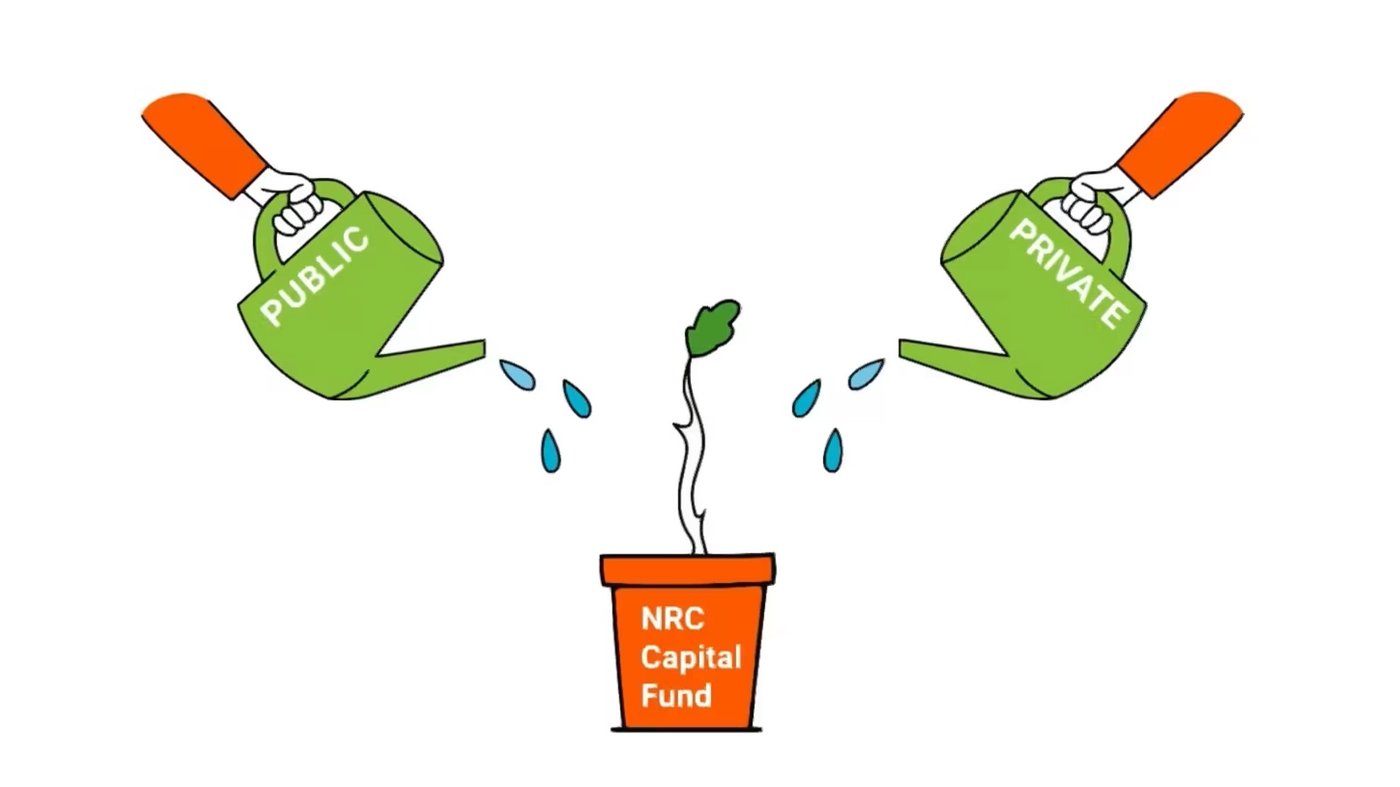

The fund will make loans to NRC country offices for multi-year, capital-intensive initiatives.
NRC’s solarisation programme will be the fund’s first focus area, providing loans to country offices to finance the replacement of diesel generators with solar technology.
NRC country offices will repay their loans through internal financing mechanisms linked to traditional short-term donor funding. NRC's head office is responsible for ensuring that loans are repaid, even in cases where a country is experiencing difficulties or delays in repaying.
The initial capital requirements are USD 12 million, with more than 10 per cent already allocated from NRC’s own capital.
Priority will be given to grants and zero-interest loans that preserve the funder’s capital but do not offer interest payments.
Going forward, the fund plans to broaden its focus and use more innovative instruments to include livelihood opportunities for refugees, ICT in displacement settings, and further progress towards environmental minimum standards.
Explore the NRC Capital Fund brochure to learn more about the fund and how to contribute.
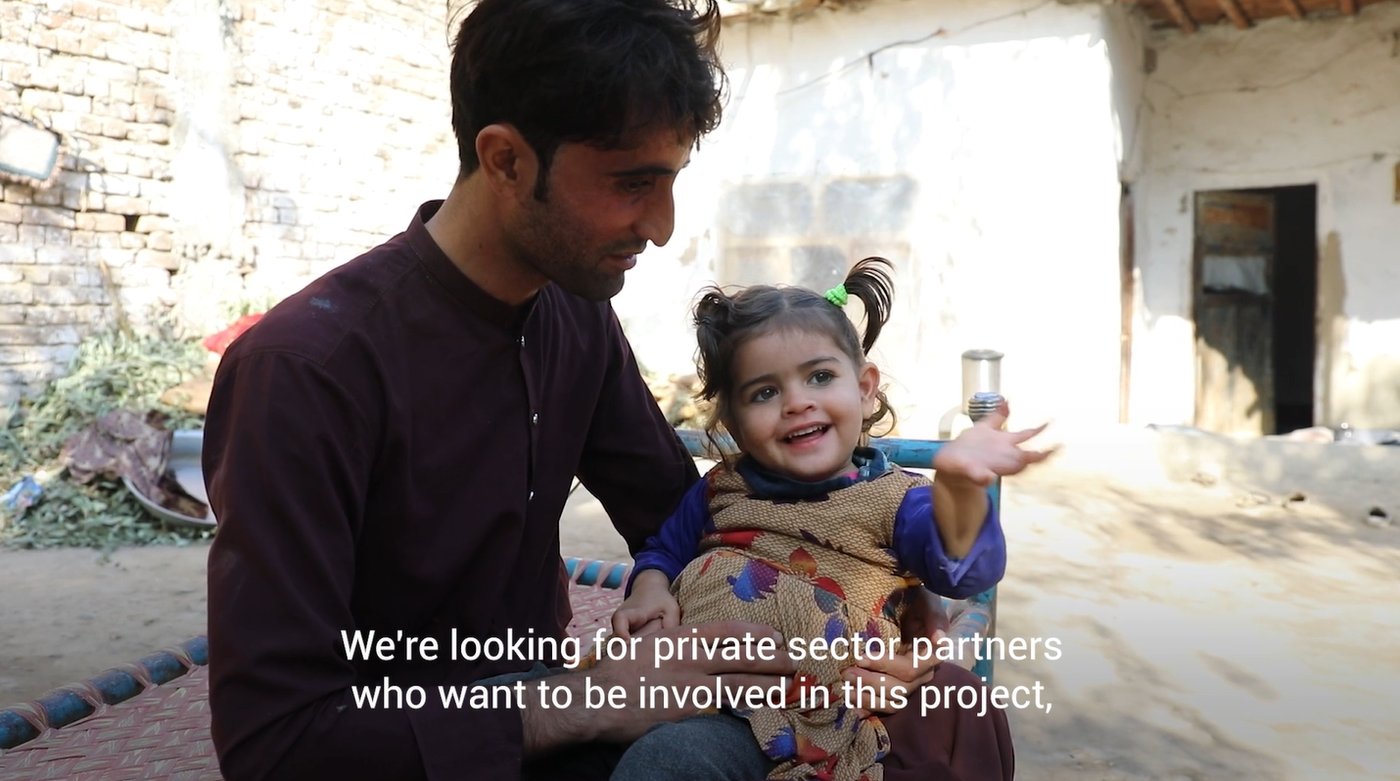

If you are interested in contributing to the fund or have questions, please contact NRC's corporate partnerships team at corporate@nrc.no.


